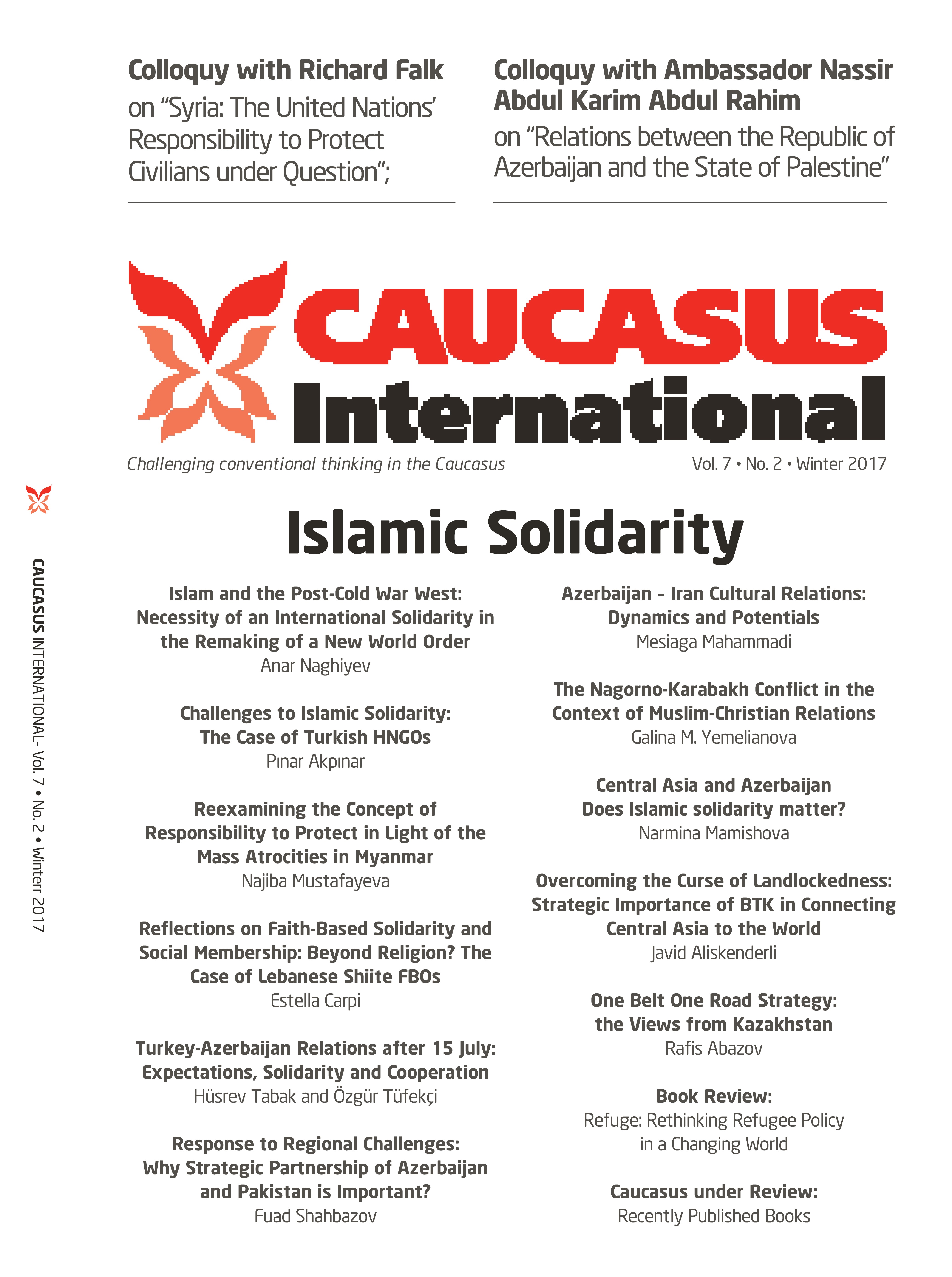The Nagorno-Karabakh Conflict in the Context of Muslim-Christian Relations
The Azerbaijani-Armenian conflict over the Azerbaijani territory of Nagorno-Karabakh, which broke out in 1987, has been one of the most enduring ethno-territorial conflicts in the former Soviet space. In 1988, the conflict escalated into a fullyfledged war, involving Armenians and Azerbaijanis from Nagorno-Karabakh, Armenia and Azerbaijan. In 1994, international mediation de-escalated the war into a fragile status quo. Since then, it has been largely neglected by Western policy-makers, media, and the wider international public. Meanwhile, the conflict remains a key threat to stability stretching from the Caspian to the Black Sea. Historically, its myriad causes included the geopolitical rivalry in the Caucasus between the Christian Orthodox Russian Empire, Muslim Persia and the Ottoman Empire; the development of Armenian and Azerbaijani nationalist movements; the initial temporary rapprochement between Bolshevik atheistic Russia and Ataturk’s secularist Turkey; Stalin’s nationality policy; the break-up of the USSR; and the resurgence of Armenian and Azerbaijani ethno-religious nationalism. The article provides a historical account of the role of religion in the geopolitics of the Caucasus with particular focus on the Nagorno-Karabakh conflict. It argues that throughout history, the religious factor has played an indirect role in first fomenting and later perpetuating the conflict.
Latest news
- 03/17/2020 Call for Submission: “Non-Alignment Movement and Its Perspective in International Affairs”. Deadline: 1 July 2020 2626 views
Popular articles
- 02/24/2020 The Role of Irredentism in Russia’s Foreign Policy 2536 views
- 02/24/2020 Construction of sub-national identity vis-à-vis parent state: Gagauz case in Moldova 2218 views
- 02/24/2020 The Conflict in Ukraine - The Geopolitics of Separatism and Divergent Identities (Commentary) 2073 views
- 02/24/2020 The Role of the Soviet Past in Contemporary Georgia 2044 views





